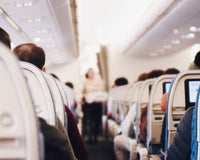Traveling is an unforgettable experience, but it can quickly become stressful if expenses pile up without control. Between transportation, accommodation, food, and activities, a poorly planned trip can easily blow your budget. Yet it is absolutely possible to enjoy your trip without overspending.
In this article, we share our best tips to help you manage your travel budget, whether you are going on a weekend in Europe, a road trip, or a long stay abroad. With good planning, a bit of common sense, and a few practical tools, you can make a huge difference.

Plan Your Budget Before You Leave
Before packing your bags, take the time to define an overall budget. This step is essential to anticipate expenses and avoid surprises.
Estimate Your Main Expenses
Start by making a detailed list of your expected costs. You can use a spreadsheet or a mobile app to estimate each category.
Main categories to plan include:
- Transportation: flights, train, bus, fuel, tolls, airport transfers
- Accommodation: hotels, hostels, Airbnb, camping
- Food: restaurants, groceries, cafés, snacks
- Activities: tours, museums, excursions, entertainment
- Travel and health insurance: often forgotten, yet essential
Once your list is ready, set a maximum budget for each category and keep a buffer of about 10 to 15 percent for unexpected expenses.
Compare Prices Before Booking
Planning ahead helps you find the best deals. Online comparison tools such as Skyscanner for flights or Booking and Hostelworld for accommodation are extremely helpful. Booking early often means better rates, especially in peak season.
If your schedule allows it, travel outside school holidays or long weekends. Prices can be up to 30 percent lower.
Choose the Right Accommodation
Accommodation is often one of the biggest expenses during a trip. Fortunately, there are many ways to save money without sacrificing comfort.
Choose Budget-Friendly Options
Hotels are no longer the only solution. You can stay in hostels if you travel solo or on a tight budget, or rent apartments and cook your own meals to reduce food costs.
Camping is also a great option, especially in summer or mountainous regions. Some campgrounds are open year-round and offer comfortable stays for less than 50 euros a night.
If you enjoy meeting locals, try couchsurfing or home-sitting, which allows free accommodation in exchange for taking care of a home.
Pick the Right Location
A cheaper hotel outside the city center may seem like a deal, but if you spend money on transportation every day, the savings disappear. Sometimes it is more economical and convenient to pay a little more to stay closer to the main attractions.
Manage Your Meals Without Overspending
Food is part of the travel experience, but meals can quickly inflate your budget.
Alternate Restaurants and Home-Cooked Meals
One of the best ways to save is to mix things up. Enjoy a local restaurant for dinner, prepare your own breakfast, and pack snacks or a picnic for lunch. Many accommodations offer shared kitchens, which is perfect for cooking simple meals and meeting other travelers.
Buying groceries at local supermarkets is also a fun way to discover regional products at low prices.
Choose Local Spots
Avoid restaurants located in tourist areas where prices are usually much higher. Follow the locals instead. Neighborhood cafés, small eateries, and food markets offer more authentic dishes at better prices.
Optimize Your Transportation Budget
Transportation often represents a significant part of travel expenses, especially for itinerant trips.
Use Public Transportation
Public transportation is the most affordable way to get around. Metro, buses, trams, and regional trains allow you to explore cities cheaply.
Check whether your destination offers a tourist pass or unlimited transportation card. Many European cities offer daily passes between 10 and 20 euros that sometimes include museum entry.
Travel Light
Traveling with carry-on luggage only can save you expensive baggage fees, especially with low-cost airlines. It also makes moving around easier and faster.
For long distances, compare prices between night trains, long-distance buses, and flights. Platforms like FlixBus or Omio help you find the best options quickly.
Track Your Expenses Daily
Even with a solid plan, it is important to monitor expenses during your trip.
Use Budget-Tracking Apps
Apps like TravelSpend, Trail Wallet, and Wallet help you track your spending in real time. They show you where your money goes and help you adjust your habits if needed.
If you prefer something simple, keep a small notebook to record daily expenses. It is very effective.
Set a Daily Budget
Give yourself a daily spending limit based on your total travel budget. This helps you better balance your expenses.
For example, if your total budget is 900 euros for 9 days, plan around 100 euros per day while saving a little for extras.
Save Money on Activities and Sightseeing
Exploring a destination does not have to be expensive. Many activities are free or low-cost.
Look for Free Activities
Most major cities offer free museum days, free walking tours, and open-air events. Parks, beaches, hikes, and markets are great places to experience local culture without spending much.
Book in Advance
For paid attractions, buy your tickets online ahead of time. You will often get reduced prices and skip long lines. Platforms like GetYourGuide or Tiqets regularly offer discount codes.
Manage Your Money and Avoid Bank Fees
Bank fees abroad can add up quickly, especially if you withdraw money frequently.
Choose the Right Bank Card
Before you leave, find out about your bank’s fees for international payments and withdrawals. Some online banks such as Revolut, N26, or Wise offer cards with no foreign transaction fees, making them ideal for travel.
Avoid exchange counters in tourist areas, which often offer poor rates. ATMs or card payments are usually better options.
Keep Some Cash Handy
Even if cards are widely accepted, always carry a bit of local currency for small shops, markets, or rural areas.
Prepare for Unexpected Situations
Traveling also means staying prepared for surprises. A missed flight, a breakdown, or a sudden health issue can disrupt your budget.
Get Travel Insurance
Many travelers overlook insurance, but it can save you hundreds of euros in emergencies. It usually covers medical costs, cancellations, and sometimes lost or stolen luggage.
Keep an Emergency Fund
Always keep a small amount of money aside, in a separate account or on a prepaid card, only for emergencies.
QnA : How to Manage a Travel Budget
How can I save money while traveling
Plan ahead, compare prices, travel light, cook some meals, and use budgeting apps.
What budget should I plan for a trip in Europe
Generally between 60 and 120 euros per day depending on the destination and travel style. Eastern Europe is usually cheaper than Western Europe.
How can I avoid bank fees abroad
Use a bank card with no international fees and avoid withdrawing cash too often.
What are the best tools for managing a travel budget
TravelSpend, Trail Wallet, and Wallet are very effective for tracking expenses.
Should I get travel insurance
Yes. It protects you from medical emergencies, cancellations, and lost luggage, often saving you significant money.











